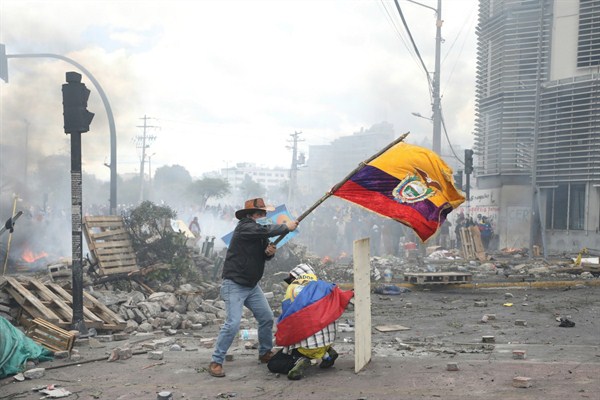When it comes to repairing the harm done by populist authoritarian leaders, restoring the independence of democratic institutions is often just the start. The next challenge can be to steer polarized societies through the economic belt-tightening that is required after an autocrat’s spending spree.
That seems to be the message from Ecuador, where President Lenin Moreno won overwhelming support in a 2018 constitutional referendum that overturned much of the political legacy of his predecessor and one-time mentor, the brash leftist Rafael Correa, and also blocked him from returning to office by putting a two-term limit on the presidency. But Moreno then sparked a deadly firestorm of national protests last October after signing a deal with the International Monetary Fund to restructure the debt he inherited from Correa, in part by drastically slashing fuel subsidies.
The austerity package was later shelved to mollify protesters, but with his approval rating still stuck at just under 20 percent, Moreno’s legacy is in doubt. As he enters the final 12 months of his first four-year term, there is deep uncertainty over his ability to win a second term in next year’s presidential election, should he decide to run again.

